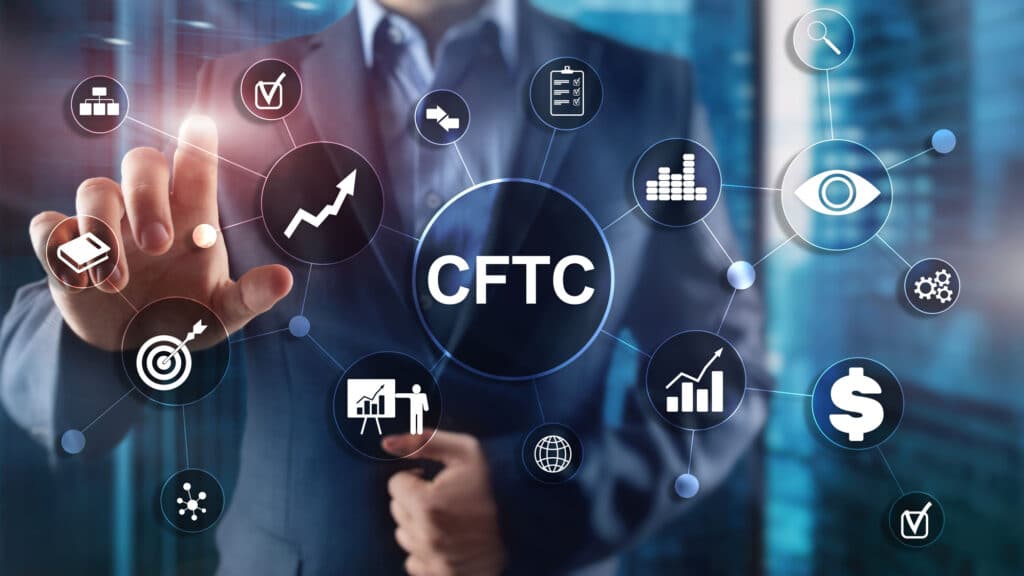

Rostin Behnam said in his last official remarks as chairman of the US Commodity Futures Trading Commission that he will continue to advocate for the CFTC to address the gap in regulation of cash markets for crypto or digital asset commodities.
Behnam will be stepping down from his position on 20 January and his final day at the regulator will be on 7 February. In September 2017 he was confirmed as a commissioner under the Trump administration after working in the Senate as counsel for six and a half years. Behnam became chair in September 2021.
He gave a speech, Commodity derivatives regulation: Where do we go from here?, at the Brookings Institution on 8 January 2025 in Washington, DC. An early endeavor that has dominated every season of his tenure is addressing the gap in regulation of the cash markets for crypto or digital asset commodities.
“I have repeated myself often and at every opportunity,” Behnam added. “My position has not changed, and I will continue to advocate for the CFTC to fill this gap if Congress so chooses—even after I have moved on.”
He argued that although the CFTC is a smaller agency, it generally has the right number of people for the number of registrants, and experts in derivatives industry which are arguably the most complex financial market.
“The US has the biggest markets in the world, and each part or segment of the market essentially has a dedicated regulator,” he said. “I know this frustrates a lot of people but ultimatelyI think it’s a net positive as we need dedicated regulators for markets that are exponentially bigger than any other market across the globe.”
Regulation can shine light on something that is otherwise dark and opaque, according to Behnam, which will lead to cream rising to the top. He said: “Everything else will go away.”
The first bitcoin futures contracts and binary options self-certified in the US in 2017 and Behnam said he has urged for greater action to provide legal certainty for rapidly developing fintech products such as cryptocurrencies.
There have been a few targeted efforts such as President Biden’s 2022 executive order on ensuring responsible development of digital assets and the Financial Stability Oversight Council identifying the regulatory gap in the spot markets for cryptoassets that are not securities. However, Behnam said the digital asset market has continued to integrate into traditional financial institutions without comprehensive regulatory guardrails.
“Concerns regarding customer protections, increasing instances of fraud and market abuse, broader market resiliency, and even financial stability are intensifying in the absence of federal legislation,” he added. “We’ve seen this before in our history where we leave large swaths of finance outside of oversight and responsibility, and we have seen time and time again that it ends badly.”
As a result, Behnam argued that the CFTC needs rules which address the derivatives industry’s current course as more entities seek to move away from the traditional and familiar models. He cautioned that there is nothing per se, unreasonable or problematic about innovative approaches but regulators have a legal duty to proceed with integrity and purpose with principles that prioritize customer protections, market stability, and resilience.
LIBOR transition
Behnam highlighted some of the achievements of the CFTC during his tenure including one of his earliest efforts as sponsor of the market risk advisory committee. The MRAC focused on interest rate reform as regulators mandated a move away from LIBOR, the benchmark rate that was embedded in hundreds of trillions of dollars of financial contracts around the world.
After the financial crisis in 2008 regulators found multiple cases of banks manipulating Libor for their own profit and defrauding the public. As a result, policymakers wanted markets to move to new risk-free rates based on underlying transactions, as they are harder to manipulate and more representative of the market. US regulators chose to replace Libor with SOFR (Secured Overnight Financing Rate).
LIBOR ended on 30 September 2024 with the final publication of the remaining synthetic LIBOR settings.
“Encouraged by the broad market participation in global cooperative and consultative efforts towards successfully transitioning away from LIBOR, the MRAC contributed through the work of its Interest Rate Benchmark Reform Subcommittee, which promoted LIBOR transition through various initiatives including SOFR First,” Beham added. “The successful transition away from LIBOR has resulted in safer, more stable, and resilient financial markets.”
While he was chair, the commission also issued a final rule on mandatory clearing of SOFR swaps.
Climate Risk
The MRAC climate-related market risk subcommittee released the report, Managing Climate Risk in the U.S. Financial System in 2020, which Behnam said was the “first of-its-kind” effort from a US government entity. Among the 53 recommendations, the climate risk report identified pricing carbon as a fundamental element for financial markets to efficiently allocate capital to reduce greenhouse gas emissions.
Behnam was encouraged by the” tremendous support” for the climate risk report and established the CFTC’s climate risk unit shortly after becoming chairman, and hosted two meetings on voluntary carbon credits (VCCs) in June 2022 and 2023. The CFTC finalized guidance on listing VCC derivatives in September 2024 which Behnam said was the first on standards for exchanges listing products aimed at providing tools to manage risk, promote price discovery, and help channel capital in support of decarbonization efforts.
“This action directly addresses the barriers to legitimacy that have plagued progress towards sustainable, scalable voluntary carbon markets in a targeted, responsive manner,” said Beham. “This, in turn, can support the accurate pricing of carbon, reduce the susceptibility of listed contracts to fraud and manipulation, and foster confidence in the contract—all of which can enhance liquidity.”
Data
The single most important lesson that regulators learned during the financial crisis was that that markets are interconnected, according to Behnam. He said: “The common language, the ties that bind the participants, practices, and practicalities to all we endeavor to achieve, is data.”
As chairman, he created the division of data (DOD) from merging the CFTC’s IT department and parts of the division of market oversight. Soon after he brought in a new chief data officer and DOD director and hired the CFTC’s first chief data scientist, who leads the development of new analytics services and tools for the agency, and whose duties include upskilling staff to enhance their analytics and artificial intelligence capabilities. In the past year, approximately 300 of the CFTC’s 700 employees have trained in data science, programming or cloud-based tools.
After the appointment of CFTC’s first chief AI Officer, the DOD launched its first annual strategic data and AI action plan, supported by and enhanced and increasingly cloud-based infrastructure.
“This gamechanger allows us to develop enterprise dashboards for entity-level risk analysis and modeling, market activity and liquidity analysis, and surveillance analysis and operate the CFTC data hub, a centralized data cataloging tool,” said Behnam.
In December 2024 the CFTC staff issued an advisory on the use of AI in derivatives markets.
Behnam concluded that Innovation has changed the modern methods of derivatives trading, and regulated exchanges now bear little resemblance to those that existed 50 years ago when the Commission’s first chairman accepted his appointment as technology is driving faster change.
“Products and structures are evolving not only to meet demand from a growing customer base that is diverse in terms of geography, sophistication, and objectives, but also to attract participants from the broader population whose interest is piqued by the promise of financial inclusion and prosperity made possible by the tech-driven ease of access to regulated markets,” he said. “To that end, we increasingly find ourselves poised to make decisions that blow past our historical roots in the agricultural markets and leave us at the threshold of the increasing expansion, transformation, and sometimes, gamification of the derivatives markets.”







